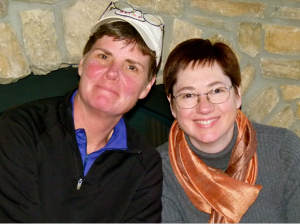 Hi there, and welcome back to the Intelligent Edge: mid-COVID edition.
Hi there, and welcome back to the Intelligent Edge: mid-COVID edition.
While we’re hopeful that at least one of those 50-odd vaccines in development will work – and that it really will be ready early in 2021 – that’s still half a year away.
So, now’s a good time to take realistic stock of where we’re at, see what we can do to make the most of right now, and plan as best we can to make things easier for ourselves next spring and mitigate future disruption.
From prospect development and operations perspectives, what might that mean?
Top prospect checkup
Well, first, we’re all keenly aware that the pandemic has impacted businesses – so many businesses – in a negative way. Now is a really good time to do a quick scan of your top 25-50 prospects (for large organizations, that would mean the top 25-50 in each major gift officer’s portfolio).
- How has their financial situation changed, if at all? Recalculate ratings accordingly.
- Is your donor in a fairly stable (or growing) industry right now? Can you code that for pulling reports?
- Have they made any recent large gifts, either to your nonprofit or to another?
- Do they have a donor advised fund? If so, it is noted/coded in your database?
- Check the obituaries to see if there has been a recent death in their family (which, I know. It’s just unbelievably sad that we need to do this, but it’s important).
End-user check-in
It’s not just our donors and their companies that have been impacted. We have been, too, of course. Everybody’s needs have changed. No matter what your position, now is a good time to check in with your supervisor and other end users to be sure that the reports and information and work you’ve been producing is still helping drive things forward for them.
- Do they need less information because concentrating on large reports is tough right now?
- Do they need the information bulleted, or in prose, or in an audio memo, because it’s easier for them to absorb?
- Do they need different information? Is something else about their prospects more important than it used to be?
We’re not in the same-old same-old anymore. We’ve all changed, and our needs have all changed. Check in to see how you can meet the new needs that exist.
Data hygiene checkup
If you’re having trouble concentrating, now is a really good time to do mindless data hygiene tasks. You know, the ones you’ve been putting off. Crank up the music and get them done.
For example: Currently in your database in the company field for 38(0)(00) of your constituents, I can say with some certainty that there are a nearly-equal number of permutations of the same company name. Goldman Sachs. Goldman Sachs Group. THE Goldman Sachs Group. Goldman. GS. GSG. Goldman Sacks.
If you fix those now when a fairly auto-pilot task is just the ticket, in the future when you want to pull a report to answer the prospecting question “hey, just how many constituents do we have that work at Goldman Sachs?” you won’t get that sinking “UGH! I have to put in 38(0)(00) different queries!” feeling.
Also, if you haven’t looked at your data entry policies (or written them at all), now is a good time to do that, so that you avoid those messy name permutations (and any other data inconsistencies) in the future.
Ethics, Due Diligence, and The Law
Was your organization affected by the Blackbaud breach? Did it catch your team flat-footed when you tried to figure out how – or if – you needed to respond or send a notification to your constituency?
Did you write down the policies and procedures you learned through that process? Do you now have someone in your organization who is responsible for managing the process and/or response when something similar happens again? If not yet, do that now.
(If you’re not a Blackbaud client, have you gotten in touch with your database vendor to find out what precautions they’re taking to avoid placing you in the same situation?)
The first lawsuits that sprang up in the Blackbaud data hijacking situation were aimed solely at the company. However it was announced this week that a new lawsuit, Cohen v. Blackbaud Inc,. also names Harvard University, Bank Street College of Education, and the Lower East Side Tenement Museum as defendants. (More information here$ and here).
There are probably more lawsuits to come. As prospect research professionals, we can help our fundraising teams stay on top of the news as it comes out.
We also tend to be the ones who are on the front lines of ethics, due diligence, and conforming with the laws that pertain to information-gathering and fundraising. These aren’t the most gripping topics, but they are important.
Can you discuss with leadership and opportunities for your team to gather for lunch-and-learns around ethics and data security? What does your team need to know to be prepared for a data breach, or to be sure you’re compliant with laws and ethics requirements?
What are you working on?
So those are just a few ideas for (actually really important) things you can do right now to stay ahead of the game and be prepared for the next few months. What are you doing right now to be prepared? Share it in the comments and bring your ideas to others!
If you want to hear more about ethics, due diligence, the law, prospect development, and how you can start those discussions in your nonprofit, join me at the APRA-MN virtual conference on October 20!



